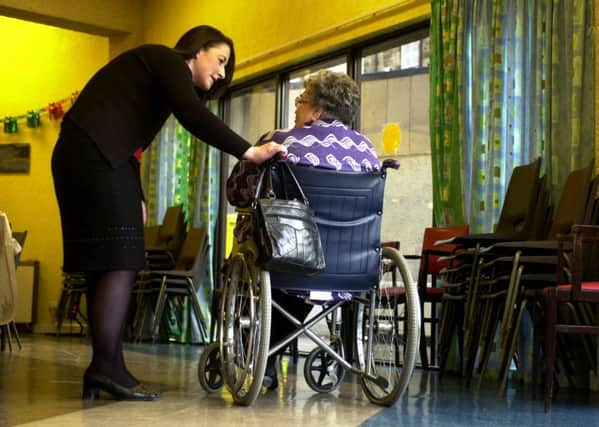Lancashire folk are set to live longer!


Catherine Musgrove looks at the figures and reveals why the gap between the life expectancy of men and women is narrowing ...
Life expectancy for people in Central Lancashire could be approaching 90 by 2030, according to a new study.
Advertisement
Hide AdAdvertisement
Hide AdMen are also set to live longer, as official estimates predict the historic gender gap is narrowing.
The study, based on Office for National Statistics data combined with advanced mathematical modelling, suggests that average life expectancy for women living in Preston, South Ribble and Chorley will be 86.9 in 2030, up from 82.5 in 2012.
For men, the expectancy is that men will live to 85.6 by 2030, compared to an average of 79.3 in 2012.
For the three areas combined, between 1981 when the data begins and 2030, the gap between men and women’s life expectancy has is expected to reduced from nearly six years to 1.4.
Advertisement
Hide AdAdvertisement
Hide AdMaria Paola Dey, professor of public health epidemiology at the University of Central Lancashire, said: “We are living longer and a lot of this is down to lifestyle factors.
“We’ve got easier access to fresh foods now, more education about things like smoking, the types of jobs we do are changing, and we’ve got better treatments now for major killers like cancer and heart disease.
“Men traditionally lived shorter lives than women because of things like heavy industrial jobs and accidents and men had much higher smoking rates with women taking up smoking later, but all that is changing now.”
Though there is an upward trend in life expectancy in the Central Lancashire area, figures show that only those living in South Ribble are expected to meet or exceed the national average life expectancy.
Advertisement
Hide AdAdvertisement
Hide AdThe national average shows women’s life expectancy will rise from 83.3 in 2012 to 87.6 in 2030. For men, it is predicted to increase from 79.5 to 85.7 over the same period.
Locally, only men and women living in South Ribble surpassed the national averages for both years.
The gap in life expectancy between Central Lancashire and wealthy areas of the south is also continuing to widen.
Women in Preston can expect to live 5.14 years less than a woman in Kensington and Chelsea by 2030, and men 5.52 years less. In 2012, the difference between the two areas was 4.9 years for women and 4.46 for men.
Advertisement
Hide AdAdvertisement
Hide AdThe projected difference of 5.33 years for men and women is the same as the current difference between the UK and developing country Malaysia.
Professor Dey said: “People living in more affluent areas are more likely to lead healthier lives.
“That’s to do with ease of access to healthier foods and education about healthy lifestyles. There’s also more unemployment around here, which is linked to deprivation and that has an effect on people’s health.”
She added: “As our life expectancy rises it’s important that our healthy life expectancy rises - we don’t want to live longer and be ill longer.
“This places a lot of pressure on social services and we have to make sure that people have access to health care, secondary care and there are issues of people needing decent pensions.”